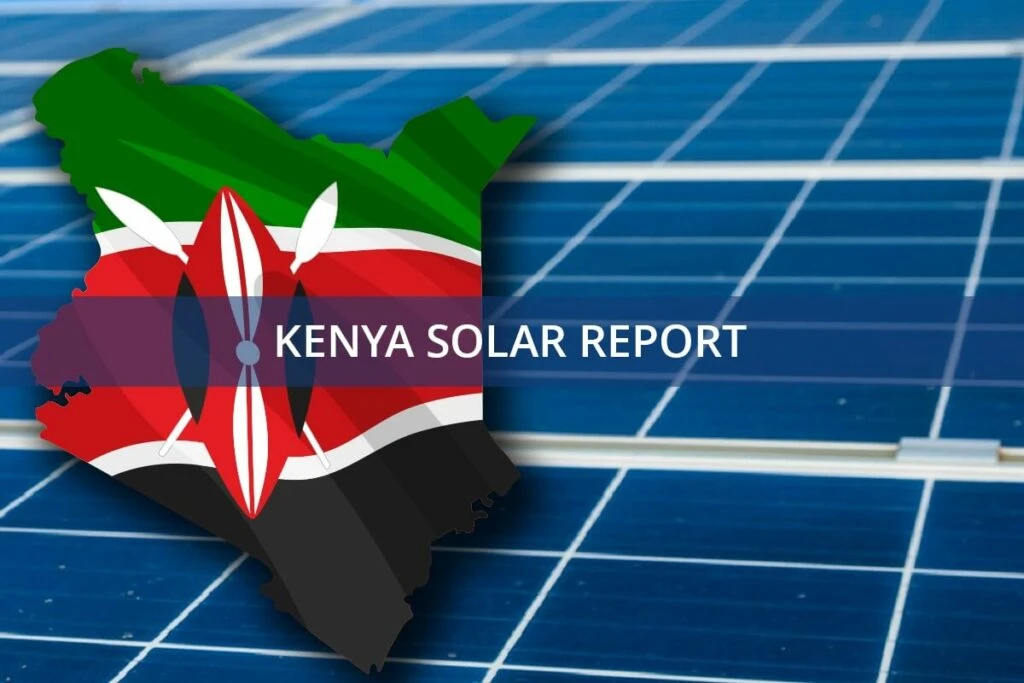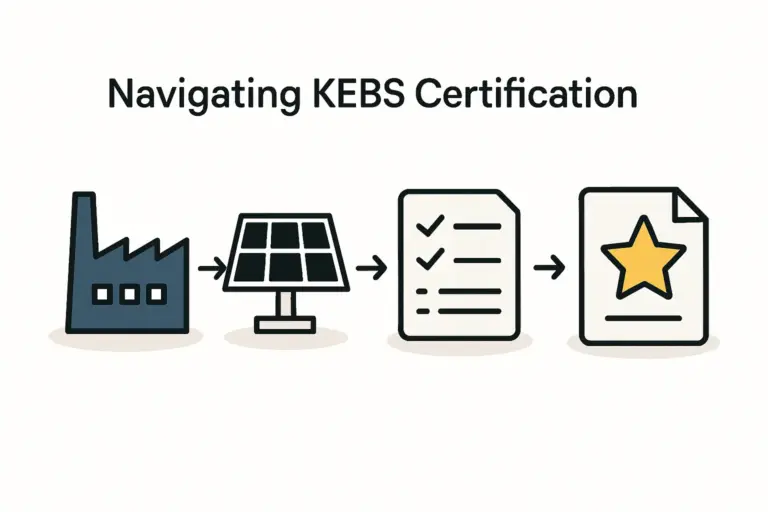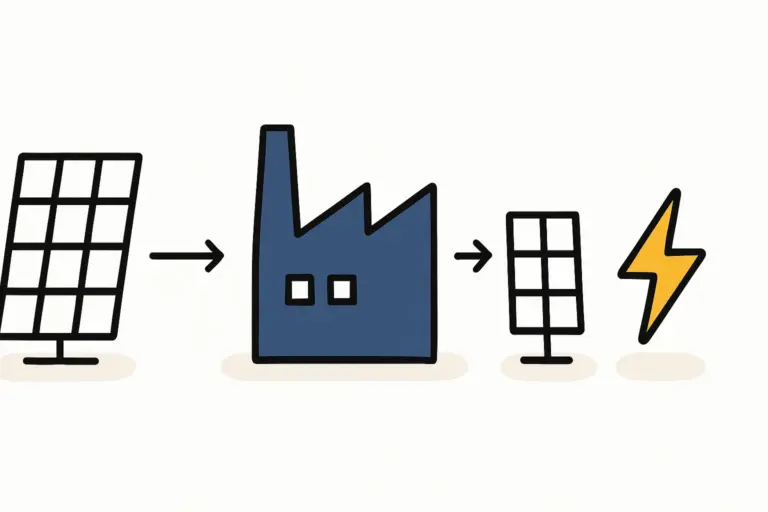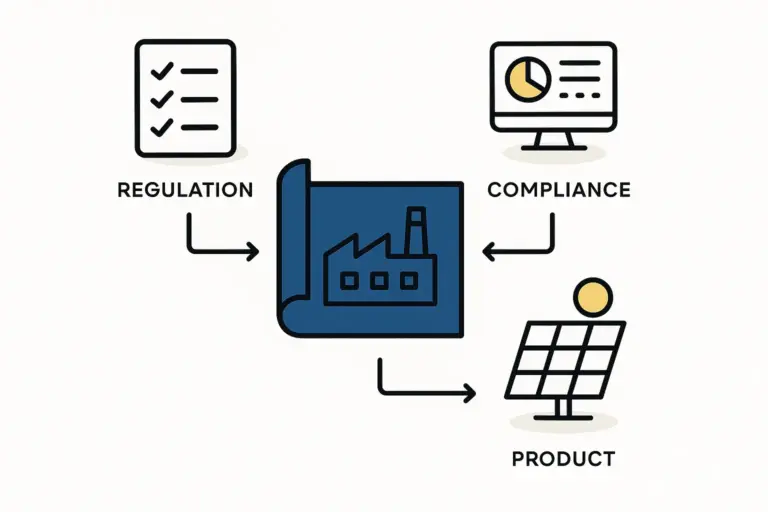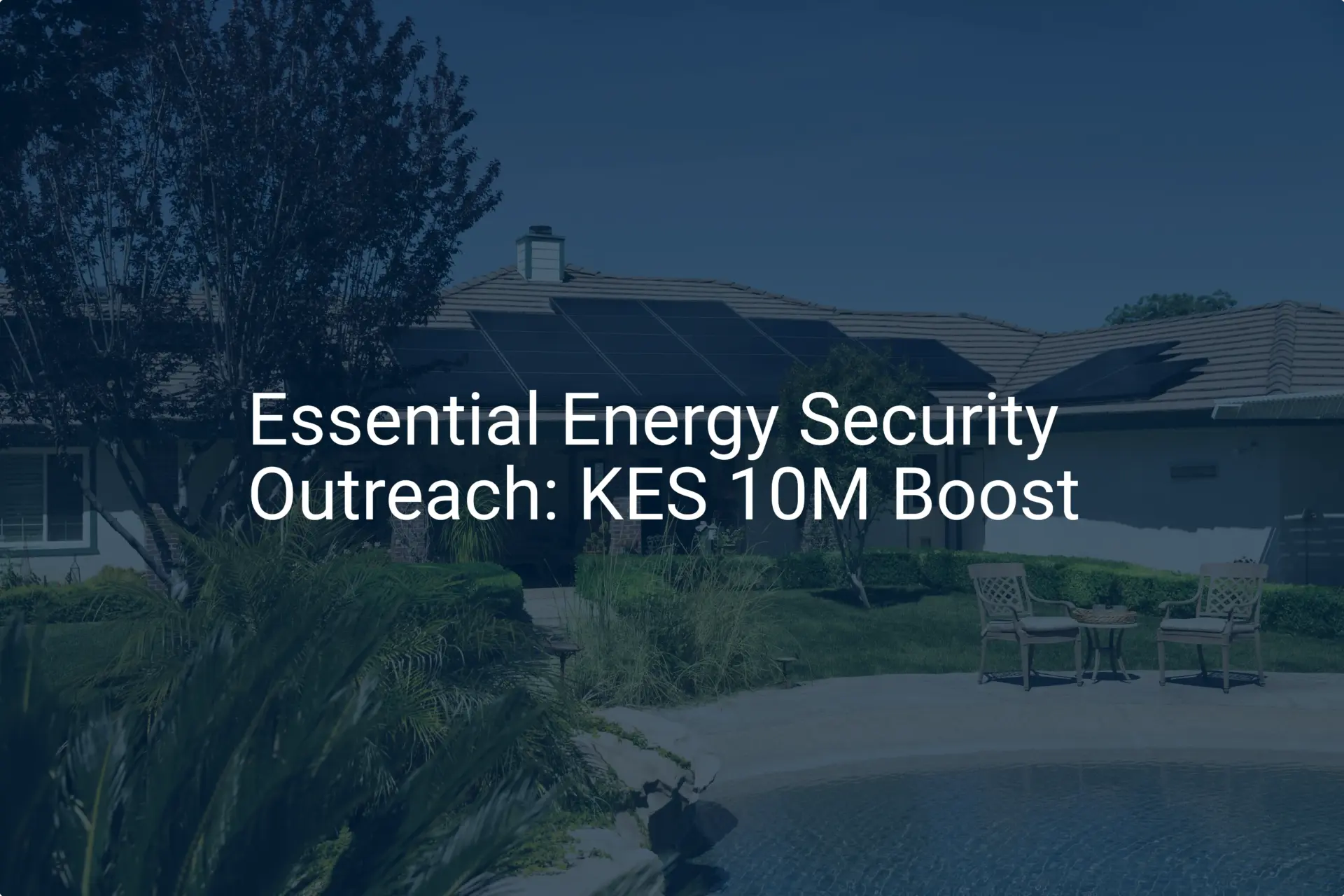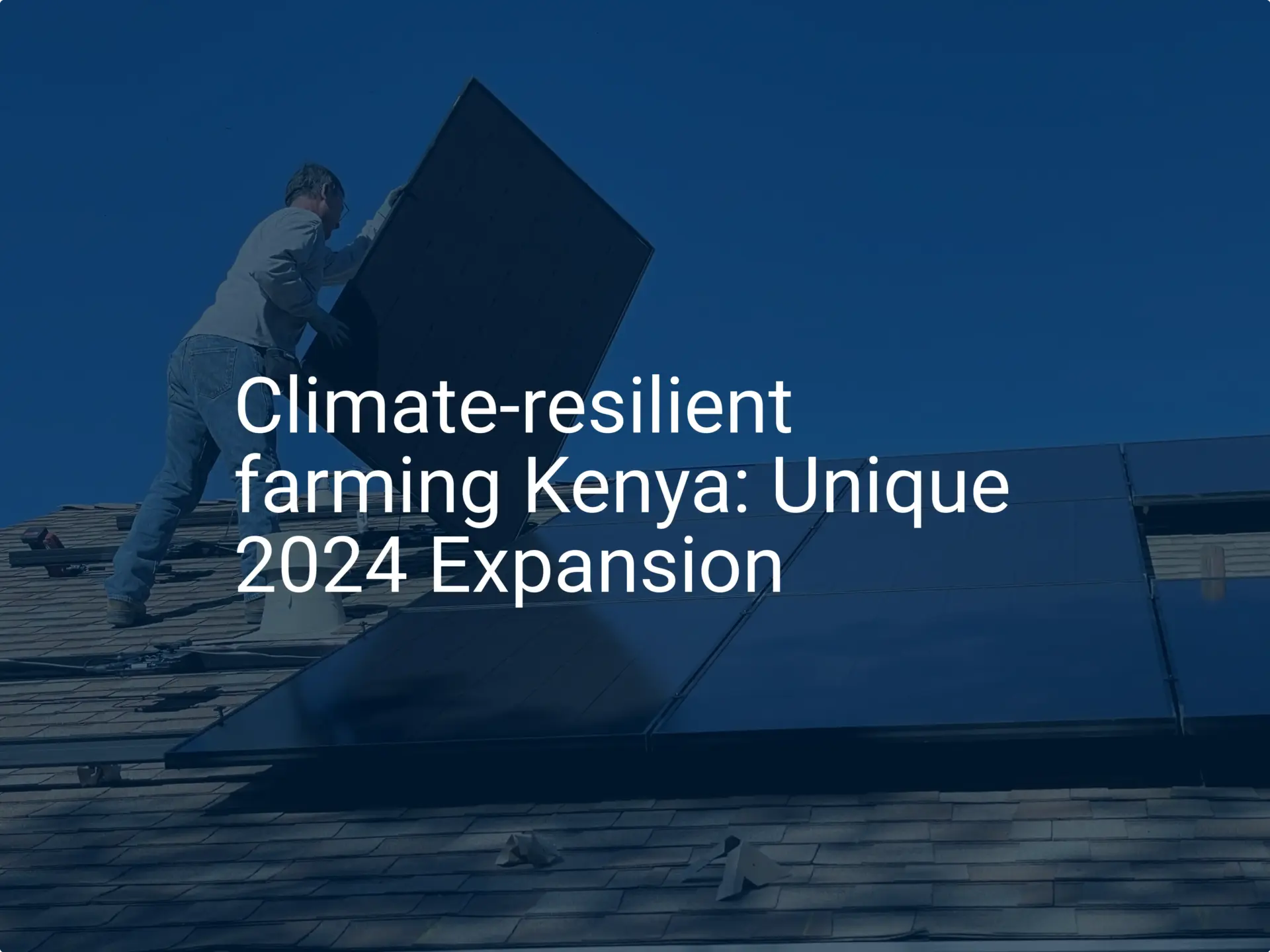Kenya stands at a pivotal moment. With one of Africa’s most dynamic economies and abundant sunshine, demand for solar energy in Kenya is expanding rapidly. Yet, most of this demand is still met by imported solar panels.
For the savvy entrepreneur, this gap presents a clear opportunity: local manufacturing.
However, establishing a solar panel factory involves more than simply importing machinery and pressing “start.” A successful venture must be meticulously designed around the realities of the Kenyan market—its economic drivers, operational challenges, and unique environmental conditions. A tailored turnkey solution offers a strategic path for entering this promising sector.
Understanding Kenya’s Unique Solar Landscape
To build a factory that thrives, you must first understand the local landscape. Several key factors shape Kenya’s solar industry, presenting a unique mix of challenges and opportunities.
High Demand Driven by Policy and Economic Growth
The Kenyan government’s Vision 2030 and its commitment to increasing electricity access are creating a powerful tailwind for the solar industry. The commercial and industrial (C&I) sector, in particular, is turning to solar to ensure stable power and manage rising energy costs.
Market data shows consistent annual growth in solar adoption, signaling robust and sustained demand—one that local manufacturers are perfectly positioned to serve.
The Grid Instability Challenge
While demand is high, the national grid can be inconsistent, especially in rural and peri-urban areas. Frequent power outages make off-grid and hybrid solar solutions not just a preference but a necessity for homes, farms, and businesses.
Local manufacturers are in a unique position to produce panels specifically for these applications, offering a level of reliability that importers cannot match.
Favorable Climate and Government Incentives
Kenya benefits from high levels of solar irradiation year-round, making solar technology exceptionally efficient. Recognizing this potential, the government has implemented supportive policies. For instance, businesses in Export Processing Zones (EPZs) can benefit from significant tax advantages.
Additionally, favorable import duties on raw materials—compared to finished solar panels—give local producers a critical cost advantage.
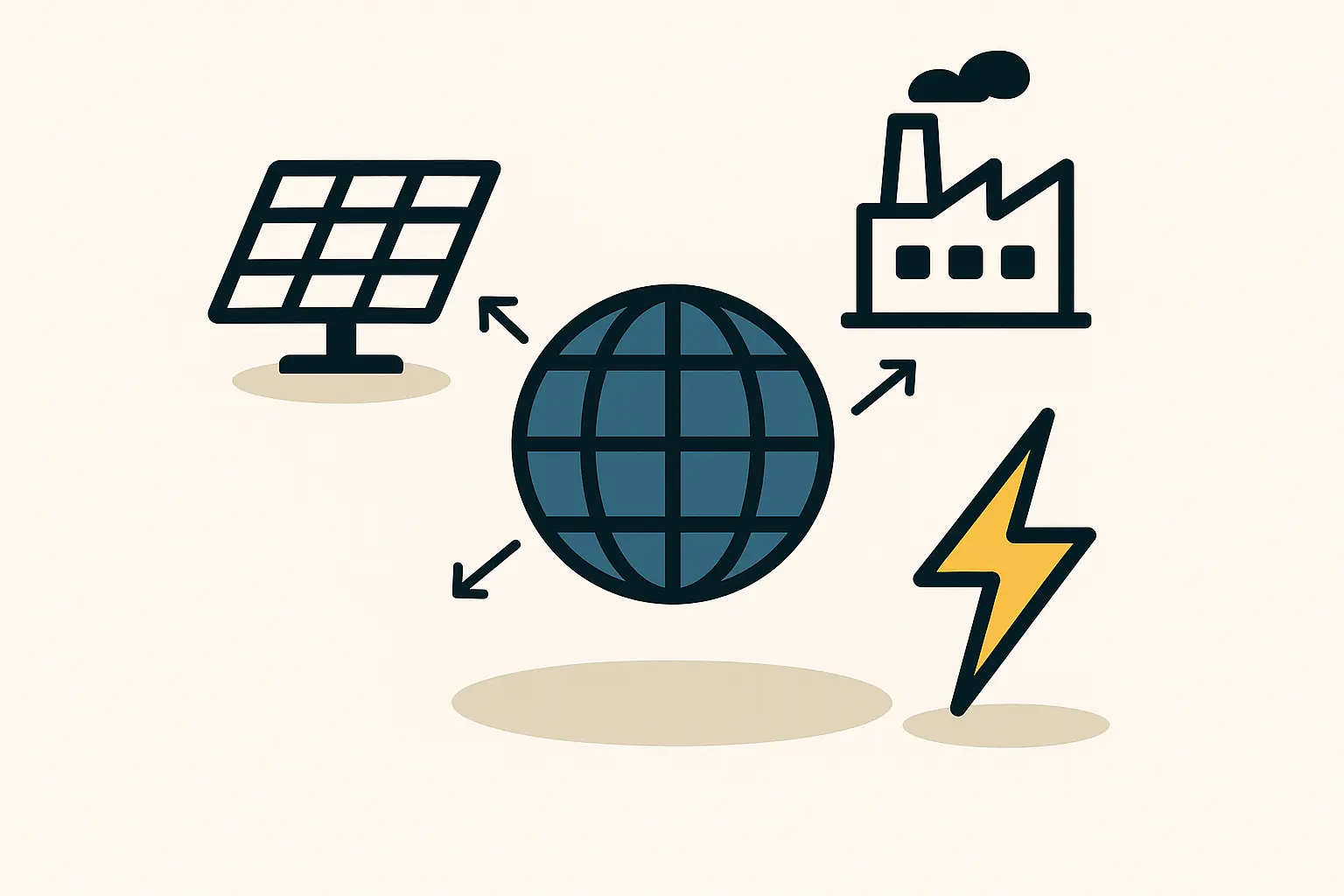
Designing a Turnkey Solution for the Kenyan Reality
A turnkey solution provides a comprehensive setup where a partner manages the entire process, from planning to production. For Kenya, this isn’t a one-size-fits-all package but a carefully calibrated system.
Production Capacity: Starting Smart, Not Big
The temptation for a new entrant might be to build a large, fully automated gigafactory to compete on volume alone. A more strategic approach for the Kenyan market, however, is to start with a semi-automated line of around 25–50 MW annual capacity.
This strategy has several distinct advantages:
- Lower Initial Capital Outlay: Reduces financial risk and shortens the path to profitability.
- Market Adaptability: Allows the business to grow and adapt its production as local market demand evolves.
- Faster Implementation: A moderately sized factory can be planned and commissioned in under a year.
For a detailed financial outline, a comprehensive solar panel manufacturing business plan is a crucial first step for any serious investor.
Machinery Selection: Balancing Automation and Labor
The choice of machinery is critical. Full automation may reduce labor costs, but it increases capital expenditure and requires specialized maintenance skills that can be difficult to source locally.
For a market like Kenya, a semi-automated line strikes an intelligent balance. It leverages the local workforce for manual processes while using automation for critical, high-precision steps like cell stringing and lamination. This makes the factory more resilient, easier to maintain, and creates valuable local employment. Selecting robust and proven solar panel manufacturing machines is fundamental to long-term success.
Module Technology: Building for Local Conditions
Not all solar panels are created equal. The type of solar module produced must be suited to Kenya’s environmental conditions.
- Durability: With Kenya’s high UV radiation, a glass-glass module may offer superior longevity and performance compared to a standard glass-backsheet model.
- Cell Technology: While TOPCon is the latest innovation, a production line based on proven and highly efficient PERC (Passivated Emitter and Rear Cell) technology is often a more reliable and cost-effective entry point. PERC delivers excellent performance and benefits from a well-established supply chain for raw materials.
A turnkey provider’s expertise is crucial for selecting the technology that offers the best balance of performance, cost, and reliability for the target market.

The Turnkey Advantage: From Planning to Production
The true value of a turnkey solution extends far beyond delivering equipment. It’s a partnership that helps you navigate the complexities of launching a manufacturing enterprise. Experience from turnkey projects in emerging markets, such as those by J.v.G. Technology GmbH, shows that a structured approach is critical for success.
The process typically includes:
- Feasibility and Planning: Analyzing market data and financial viability.
- Line Design: Customizing the factory layout and machinery configuration.
- Procurement and Logistics: Sourcing and delivering all necessary equipment and materials.
- Installation and Commissioning: Assembling the line and ensuring it meets performance specifications.
- Training and Support: Equipping the local team with the skills to operate and maintain the factory efficiently.
This end-to-end management minimizes risks and ensures the new venture is built on a solid technical and operational foundation.
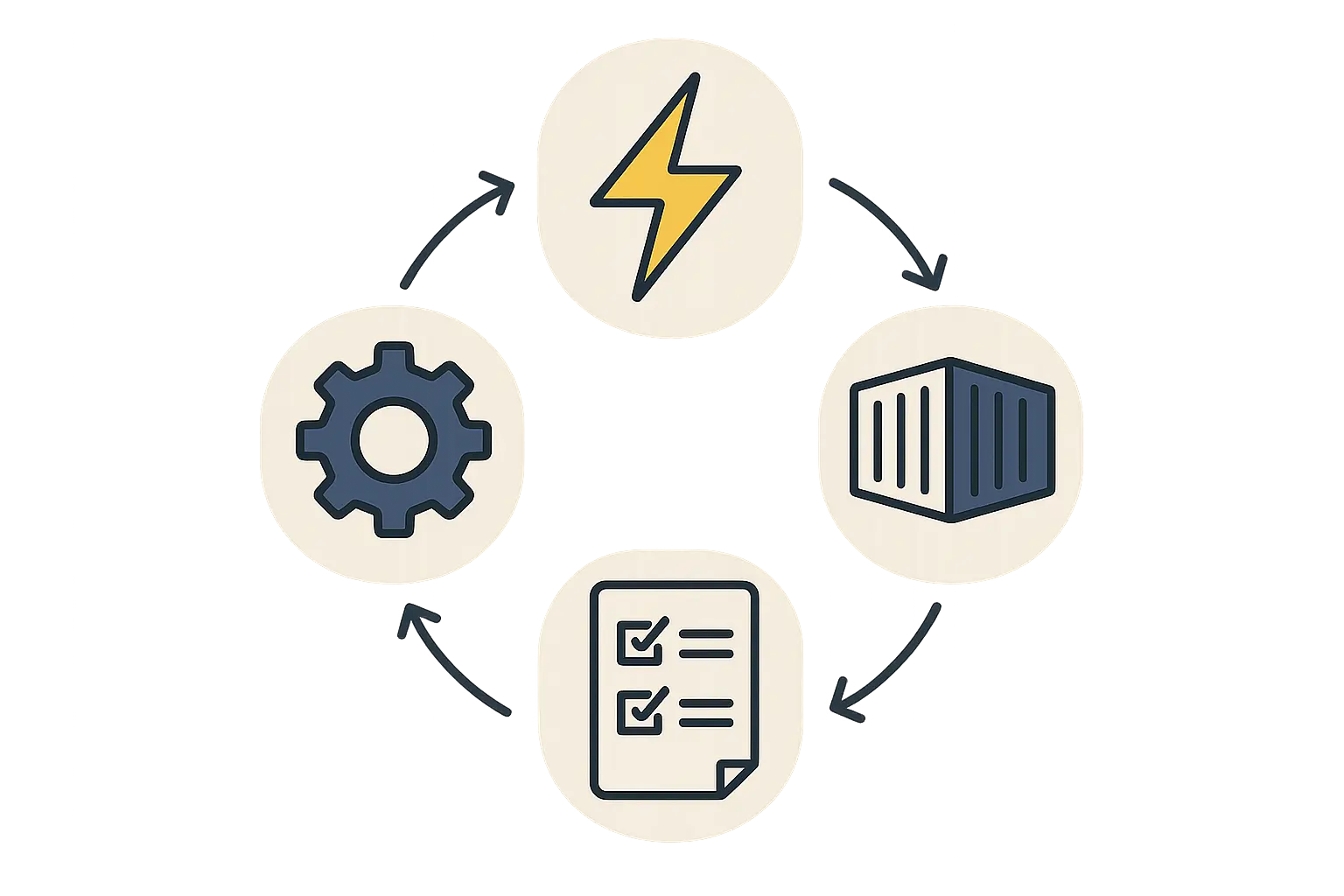
Frequently Asked Questions (FAQ) for Investors in Kenya
-
What is a realistic initial investment for a 25 MW line in Kenya?
A typical investment for a semi-automated 25 MW line is between €1.5 million and €2.5 million. This figure typically covers core production machinery, installation, and initial training. Additional costs for the building, utilities, and working capital for raw materials should also be factored in. -
How many employees are needed for a semi-automated factory?
A 25 MW semi-automated line typically requires 25 to 35 employees for a single shift, including operators, technicians, and administrative staff. -
Can a local factory compete with cheaper imported panels from Asia?
Yes, with the right strategy. Competition isn’t just about price. A local manufacturer can offer superior quality control, faster delivery, customized products for local needs (like off-grid systems), and responsive after-sales service. Leveraging import duty advantages on raw materials versus finished panels also provides a significant cost advantage. -
How long does it take to set up a turnkey factory?
From signing the contract to the first panel coming off the production line, a realistic timeline is 9 to 12 months. This includes manufacturing the machinery, shipping, installation, and commissioning. -
What kind of support is provided after the factory is operational?
A quality turnkey partnership includes comprehensive on-site training for operators and maintenance staff, as well as ongoing support for process optimization to ensure the factory consistently meets its quality and output targets.
Your Next Step in Solar Manufacturing
Entering the solar manufacturing sector in Kenya is a significant undertaking, requiring careful planning and expert guidance. The opportunity is substantial, but success depends on a strategy tailored to the local context.
For entrepreneurs ready to move from interest to analysis, the next step is to gain a deeper understanding of the process. A structured educational program, like the e-courses from pvknowhow.com, can provide the foundational knowledge needed to thoroughly assess the opportunity and confidently engage with technical partners.

